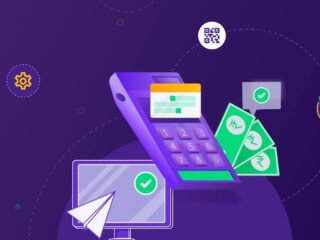
Artificial intelligence is the newest addition to every industry out there. From demo slots in online casinos to software companies, every corporation is leveraging AI’s widespread success. The only difference is how each enterprise utilizes AI to its benefit.
Considering the technological nature of their industry, it’s no surprise that software companies were among the first to leverage AI for their services, and it has paid out quite well for them. While some people worry about AI taking over their livelihoods, software giants such as Microsoft have proven that a balance between AI-driven and human-provided services is the way forward.
How Are These Corporations Using AI?
While there are endless ways for tech companies to make use of artificial intelligence, here are some prominent examples we have recently seen from the world’s leading software enterprises:
AI Chatbots
From Snapchat to Skype, almost every communication software out there now has its chatbot. Users can employ these virtual assistants to discuss ideas, brainstorm projects, and generate content. It’s like always having a helper at the click of a finger. Think Google Assistant, but now you have it in every software. These chatbots can enhance customer experience in several ways while making navigating new software easier. One of the most recent examples of this usage comes from Microsoft, which introduced the Copilot chatbot for Excel and Outlook users in February 2024.
Predictive Analytics
Companies like Amazon are at the forefront of using AI-generated predictive analytics in order to improve customer experience. Online e-commerce services like Amazon collect data about their consumers’ buying habits, using them to recommend other products they might like. This way, users can get curated feeds with recommended products without spending hours researching the platform. Predictive analytics is the future of online shopping, having become the ultimate way to enhance shopper experience.
Generative AI
This type of AI technology is mainly utilized by creative software such as Adobe and ChatGPT. Generative AI works in an input and output manner. Users describe to the technology something they want to create, and the software uses existing content to generate new ideas.

This is a great way to boost creativity for people with a bit of creative block. Thus, art generators like the Adobe Firefly are becoming increasingly popular with people who use these software regularly. All users need to do is add a text prompt, and Firefly will give them visual representations of whatever they ask.
Task Automation
Artificial intelligence is also employed to improve a company’s functionality. Within this category, task automation is one of the most significant uses of AI in software corporations. Tasks like code testing and debugging can take up significant time in developers’ schedules.
With AI, software engineers can automate these tasks and focus their time on other, more important development milestones. There is still complex work that requires a developer’s full attention, which they’re often unable to provide when their time is being wasted in fixing menial bugs. Here are some common examples of tasks that AI can automate for a software enterprise:
| Problem | Maximum Time Required Without AI |
| Identifying bugs in test scripts | Could be months |
| Fixing the most common code errors | Could be days |
| Detecting anomalies in software logs | Several weeks |
| Creating and maintaining documentation for codes | A full day |
| Producing clean data from extensive data records | A few hours |
User Personalization
This is somewhat similar to how companies like Amazon are using predictive analytics. Consider the example of the classic casino free slots. While these usually had the same outcomes and pay tables regardless of who was playing, AI has changed that dynamic. Now, these slots can personalize the playing experience by analyzing the preferences of whoever is playing.
Software companies are doing something similar with their services. Whether you’re using photo editing software or a creative writing tool, each will offer you particular suggestions based on your preferences and usage of the software so far. This level of personalization was not possible ten to twenty years ago, which is why AI is changing how we approach technology.
Software Testing
Lastly, software testing is a substantial benefit corporations have received from AI. Whenever new software is being developed, it must go through several simulations to identify potential bugs or other disruptions.

This task can become quite redundant and requires hours of work, which is where AI can take the load off of developers. Not only does AI increase efficiency, but it also has a higher chance of bypassing human error and finding every single potential glitch in a new software.
In a Nutshell
Like any other industry, software corporations are no strangers to using artificial intelligence. Depending on the scope and services of a company, there is a diverse range of ways that enterprises have been using AI to their benefit. Instead of being scared of AI takeover, these corporations are leveraging AI to provide extra services to improve customer experience or automate tasks to increase efficiency. The future of AI is still quite unpredictable, but one thing’s for sure: it will continue being a part of these corporations for many years to come.












